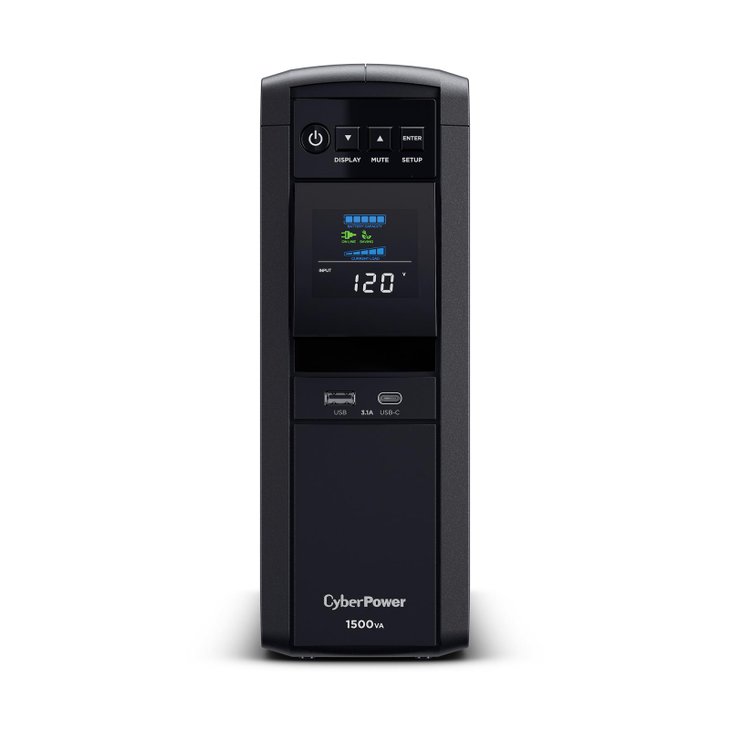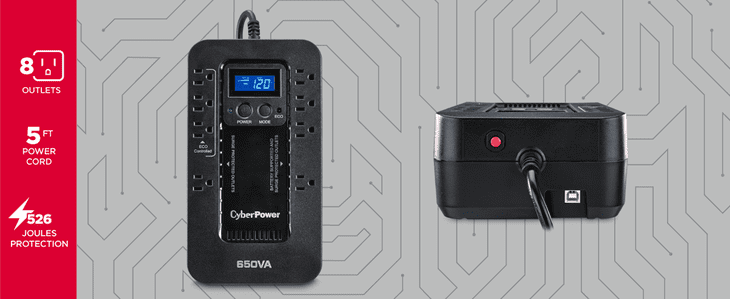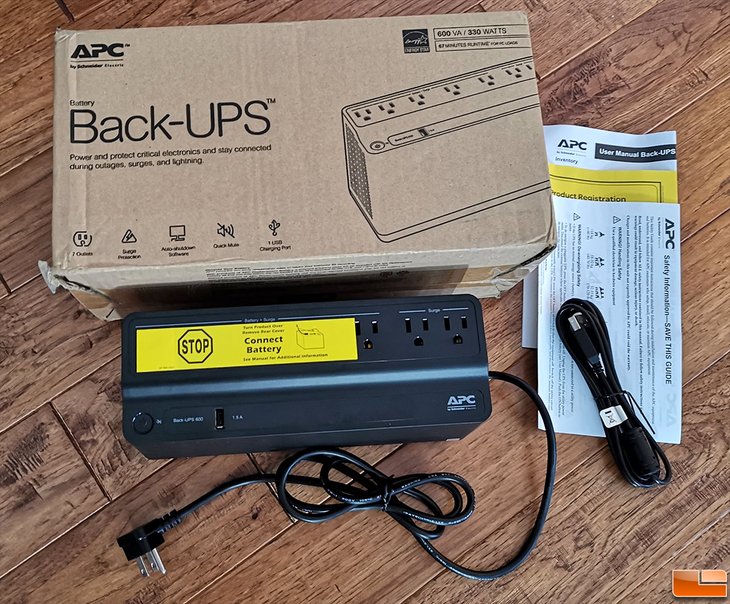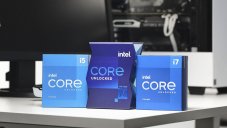The Best UPS For Gaming PC In 2023
Teethecutecat - Aug 17, 2023

A good UPS (Uninterruptible Power Supply) will protect your computer from sudden power outages and voltage spikes.
Table of Contents
A dependable UPS battery backup is your safeguard against blackouts, voltage drops, and unexpected power surges. It provides you with a crucial window to save your ongoing work and perform a safe shutdown of your computer. With power irregularities capable of damaging your PC's internal components, the primary advantage of investing in a UPS is the reassurance it brings to your computing experience.
For individuals owning high-performance gaming PCs, opting for an uninterruptible power supply as a backup is a wise decision. It shields your valuable system from voltage changes and acts as a surge protector. A UPS employs internal batteries to provide a steady power flow. A quality UPS gives you ample time to save your tasks or reach a safe stopping point before turning off your PC securely. Among the options available, the CyberPower CP1500PFCLCD stands out as our current favorite. While it might be a bit costly, it offers a substantial power supply, keeping even the most power-demanding gaming setups running for about 10-20 minutes following a power loss.
The time a UPS provides for saving your work or game progress varies based on power consumption, and there are other factors to consider. Remember, these aren't personal generators, so on average, you can expect a maximum battery runtime of 10-15 minutes. If you have more devices connected, the runtime will be shorter. The primary purpose is to give you enough time to secure your work and properly shut down your PC.
We conducted thorough testing on each of the UPS units mentioned below to ensure they met our criteria. Although their outward appearance may not be remarkable, these unassuming black boxes delivered exactly what we were seeking. This information empowers you to make a well-informed choice that aligns with your specific requirements and budget considerations.
The best UPS for gaming PCs
1. CyberPower CP1500PFCLCD - The best UPS for most gamers
Price: $214

Specifications
| Capacity | 900W | 1500VA |
| Voltage range | 160–265Vac |
| Surge protection | Yes |
| Dimensions | 265 x 100 x 370mm |
| Weight | 10.9kg |
Pros & Cons
| Pros | Cons |
| High price |
The CyberPower CP1500PFCLCD 1500VA stands out as a premier UPS in the market, earning its place as our top recommendation for gamers due to several compelling factors. Notably, it boasts an impressive power capacity, capable of accommodating even the most demanding gaming setups, encompassing high-performance GPUs and overclocked CPUs.
With the exception of extremely elaborate configurations involving numerous hard drives, multiple GPUs, and additional accessories, the CP1500PFCLCD is adept at providing a substantial power reserve lasting around 10 to 20 minutes (potentially longer for less resource-intensive systems) in the event of a power outage.
A defining attribute of the CP1500PFCLCD is its true sine-wave output, a feature of paramount importance. In its price bracket, most UPS backups offer simulated sine-wave output, characterized by a stepped waveform that approximates the electricity provided by standard wall outlets. However, certain electronic devices are sensitive to simulated sine waves, potentially leading to erratic behavior. What sets the CP1500PFCLCD apart is its provision of a genuine sine-wave output, a rarity in the market at its cost of $214. CyberPower deserves commendation for delivering such an exceptional level of output quality within this price range.
2. CyberPower EC650LCD - The best UPS for your network & accessories
Price: $87.95

Specifications
| Capacity | 390W | 650VA |
| Voltage range | 96–140Vac |
| Surge protection | Yes |
| Dimensions | 150 x 79 x 269mm |
| Weight | 2.9kg |
Pros & Cons
| Pros | Cons |
|
|
If you're seeking a UPS solution for smaller devices and network equipment, the CyberPower EC650LCD emerges as the ideal choice for most users. Priced at $88 for a 390W/650VA model, the EC650LCD offers a sufficient power reservoir, capable of sustaining a typical home network for more than 15 minutes. This duration provides ample time to gracefully exit games or applications, save ongoing work via the network, and execute a controlled shutdown in the face of a power outage.
The compact size of the EC650LCD allows it to be discreetly tucked away, occupying minimal desktop space despite its 390W capacity. Among the standout features of the EC650LCD are its assortment of ECO ports. These ports offer the flexibility to be programmed and scheduled for automatic activation or deactivation based on your routine or usage scenario. Moreover, the ECO ports have the added benefit of powering down peripherals such as speakers and displays when your PC is either asleep or powered off. This efficiency-enhancing capability distinguishes the EC650LCD as a noteworthy choice for users looking to optimize power management alongside reliable backup functionality.
3. APC BE600M1 - The best UPS for small accessories
Price: $84.99

Specifications
| Capacity | 330W | 600VA |
| Voltage range | 92–139Vac |
| Surge protection | Yes |
| Dimensions | 139 x 105 x 274mm |
| Weight | 3.49kg |
Pros & Cons
| Pros | Cons |
| For your network, not your PC |
The name APC is synonymous with top-notch UPS quality. In my home setup, I rely on three of APC's Smart-UPS professional-level units: two 1000VA units for my network and NAS equipment, and one 1500VA unit for my PC and displays.
APC's BE600M1 model excels in offering reliable battery backup and surge protection for your frequently used devices. This notably includes your smartphone and perhaps a tablet. Yet, it extends its power capacity to accommodate a router and a single display. If your intention is to employ the BE600M1 solely for powering a Wi-Fi router, this unit packs enough energy to enable several hours of uninterrupted internet browsing, even if the household experiences a general power outage. Priorities addressed.
A standout aspect of the BE600M1 is its compact size. Unlike most UPS units that are bulkier and intended for floor placement, APC encourages users to position the BE600M1 on a desk. An added convenience is the presence of a single 1.5A USB port, designed for charging phones or tablets. This eliminates the need for your device's separate power adapter, which often consumes a wall socket or two. By using the BE600M1, you can free up these outlets for other devices, contributing to an overall more streamlined setup.
The best UPS for PC gaming FAQ
1. What type of UPS should I buy?
When searching for the right uninterruptible power supply (UPS) for your gaming PC, there are two primary types to consider: sine-wave and simulated sine-wave.
Sine-wave UPS backups deliver an uninterrupted and seamless alternating current (AC) power supply directly to your power supply unit (PSU). Known for their efficiency, these units provide power in a consistent and smooth manner, making them the favored option for gaming PCs due to their dependable and effective performance.
2. What's the difference between sine-wave and simulated sine-wave UPS?
A pure sine-wave signal closely matches the alternating current (AC) power that your power supply unit (PSU) expects from the mains. In essence, your computer should not be able to distinguish between the power supplied by your UPS battery and the power received from the wall outlet. This compatibility ensures seamless operation.
On the other hand, a simulated sine-wave UPS generates a waveform through pulse-width modulation (PWM), resulting in a stepped and approximated waveform. This approach is akin to how PC case fan RPM is controlled. Simulated sine-wave UPS units are often more budget-friendly compared to pure sine-wave ones. They prove useful for powering peripherals, small devices, and monitors. However, their waveform might not always be an exact match, which can lead to compatibility issues, particularly with power-hungry devices demanding a consistent input.
When a power surge or outage is detected, your UPS switches to battery power. The crucial distinction between sine-wave and simulated sine-wave lies in how this battery power is supplied to your PC or accessories. Certain power supply units can identify the frequency of a simulated sine wave and may abruptly shut down as a protective measure against this irregular power signal. This implies that, despite having a UPS in place, your PC might still lose power if the PSU reacts to the waveform irregularity of a simulated sine-wave UPS.
3. How long will a UPS last?
A 1500VA uninterruptible power supply (UPS) typically has the capacity to keep your computer running for less than an hour. However, if you intend to power both your PC and your monitor using the UPS, you should expect around ten minutes of runtime. In comparison, a 650VA UPS operating at its maximum load might provide approximately seven minutes of power, considering its lower peak wattage.
>>> Read more Gadgets news on Mobygeek.com
Featured Stories

Gadgets - Aug 03, 2023
Full Gaming PC Setup Price In India 2023

Gadgets - Jul 19, 2023
How Gadgets Enhance Online Casino Gameplay

Gadgets - Jun 15, 2023
10 Best Mobile Gaming Gadgets 2023!

Gadgets - Apr 28, 2022
Three Reasons Why Investing in a Gaming Mouse Will Improve your Performance and...

Gadgets - Mar 18, 2022
The Rise of CSGO Gambling

Gadgets - Mar 19, 2021
Bip S Lite Review: One Of The Best Options Under Rs. 5000

Gadgets - Mar 19, 2021
Best Headphones For Gaming: Top Picks For Every Budget

Gadgets - Mar 19, 2021
How Mouse Works: Who Invented It And How Do Different Types Work?

Gadgets - Mar 17, 2021
Intel Announced 11th-Gen Rocket Lake Processors, Rivaling AMD Ryzen Chips

Gadgets - Mar 17, 2021
Comments
Sort by Newest | Popular